TLDR: The Reserve Bank hiked its official rate by a ‘bazooka’-sized 50 basis points this afternoon, but a comment buried in its statement about not changing its forecast track caused wholesale interest rates that underpin fixed mortgage rates to actually fall in the last couple of hours. Go figure. I do that lower down.
I also talk about that irony and the implications for housing, mortgage rates and the economy in a pop-up hoon in podcast form above with Kiwibank Chief Economist Jarrod Kerr and Fisher Funds’ Head of Fixed Income David McLeish.
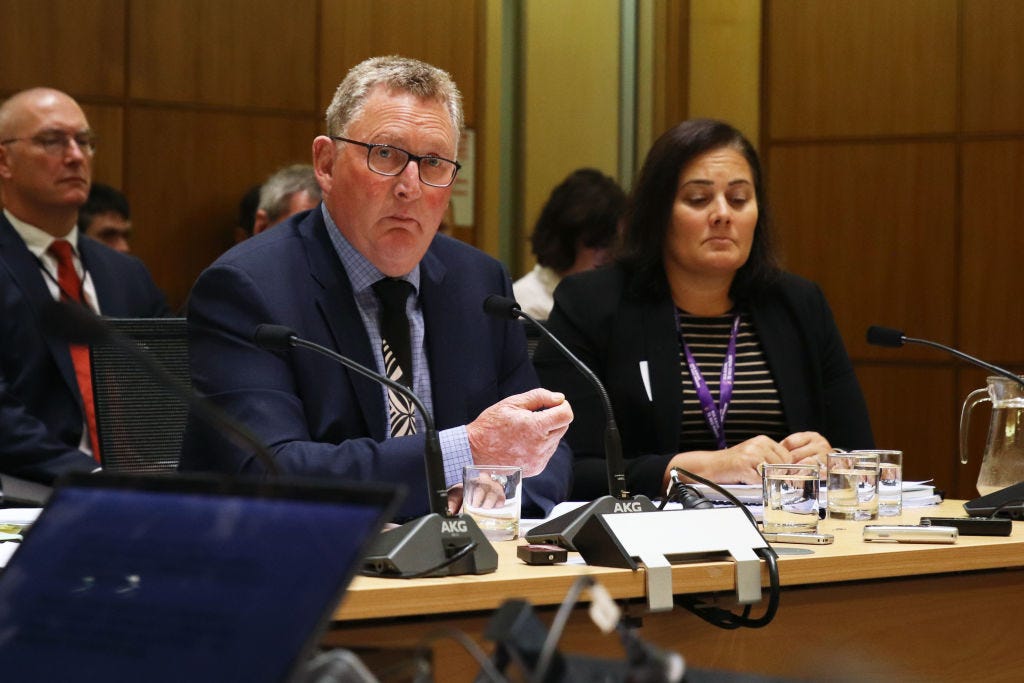
Elsewhere in the news today:
Covid-19 Minister Chris Hipkins announced this afternoon that Aotearoa-NZ would go to the ‘orange’ setting from ‘red’ at 11.59 pm tonight, which means indoor venues will have unlimited capacity and seating arrangements;
Food prices rose at an annual rate of 7.9% in March, which was their fastest annual rate in almost 11 years, and which Commerce Minister David Clark said confirmed “the need to rein in the super profits of the supermarket duopoly,”;
‘Bazooka’ hike fires softly
The Reserve Bank hiked its Official Cash Rate by 50 basis points to 1.50% this afternoon, which was more than the 25 basis points that most economists expected and the first 50-calibre ‘bazooka’ hike in 22 years.
But the bank buried a comment in its statement that showed it had not increased its forecast track for the OCR from its February 23 Monetary Policy Statement. Back then, it forecast the OCR would peak near 3.35% by the end of next year. That was well below the forecast track of over 4.0% already priced into wholesale interest rates by swaps and bill traders.
The bank said today it saw inflation headed over 7% in the first half of this year, which is well above the 6.6% peak the bank saw in late February. It did note however that growth was slowing globally and there were headwinds to consumption and residential construction at home.
So the irony of today’s ‘bazooka’ rate hike, is that the dovish comment about the OCR track saw wholesale interest rates drop 10-20 basis points. No one is suggesting that would allow fixed mortgage rates to fall, but there’s little in this decision to force fixed interest rates higher than they had already been pushed. Floating mortgage rates are, however, likely to rise by around 50 basis points.
Here’s the Reserve Bank’s key comments in the decision announced today at 2pm (bolding mine):
“The risk of more persistent high inflation expectations has increased. The Committee agreed that their policy ‘path of least regret’ is to increase the OCR by more now, rather than later, to head off rising inflation expectations and minimise any unnecessary volatility in output, interest rates, and the exchange rate in the future. The Committee agreed to a 50 basis point rise in the OCR, consistent with this least regrets analysis.
“The Committee noted that the OCR is stimulatory at its current level. Members agreed that a larger rise in the OCR now is consistent with the forward path for interest rates outlined in their February Statement. Members also agreed that this ‘stitch in time’ approach is consistent with near-term financial market pricing.” Reserve Bank statement.
So what? - This front-loading of rate hikes but with the same peak next year achieves the Reserve Bank’s aim of trying to scare down inflationary expectations in the short term without necessarily increasing longer term mortgage rates any more than they have.
My view is the Reserve Bank is unlikely to get too close to the 3.35% by the end of next year, let alone the 4% the market was expecting. The feedback loops of a cooling housing market, cooling consumer spending because of ‘demand destruction’ from higher fuel, energy and rent costs, and a slowing house-building market will be more than enough to cool things down without having to replace the bazooka with an NLAW or a Stinger.
The day we finally reopened properly
Today marks something of an historic day in our Covid history. It’s the first day since the omicron wave reared up in January and February that our borders are open quarantine-free to Australians, and there are no limits on gathering indoors.
Viv Beck, the CEO of Auckland business group Heart of the City, said the move to orange was a major relief for Auckland hospitality, retail and tourism businesses. She estimated the various trading restrictions had reduced receipts by 50% or $1b. She noted the Heart of the City's membership had fallen by 213 since early 2020 to its current 1,195 because of business closures. Beck is now running to be Auckland Mayor.
Auckland Chamber of Commerce CEO Michael Barnett said the move to orange would finally give event and hospitality planners and bookers the confidence they needed to restart.
“The orange light will have an immediate and positive impact with the lifting of capacity restrictions that have hurt hospitality and events and clearly signal to customers that it is safe to re-engage.
“We have to make up for lost time and show the world that New Zealand is still on the map and offers opportunity and a lifestyle to attract the skills and money we desperately need to re-energise our economy.” Michael Barnett
So what now? - An exhaustion and sense of anti-climax hung over today’s announcement. The damage to confidence and spending in the first quarter has been much heavier than many expected and is certainly no repeat of the celebration in the second half of 2020 when it appeared we have beaten the first version of Omicron.
Now we’ll see whether the Australian tourists come back and how many young residents here choose to jump on the plane going back across the Tasman for higher wages and lower rents.
Scoops and news of note







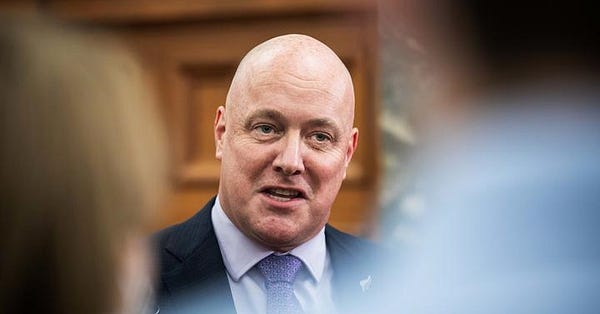

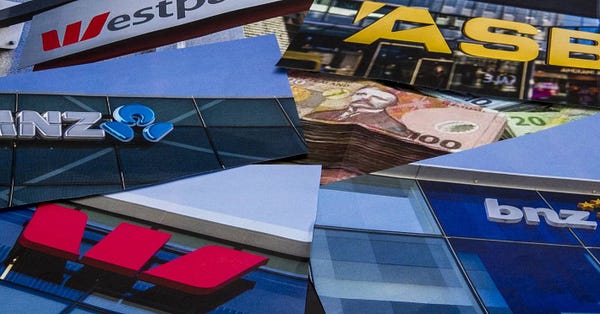


Chart of the day

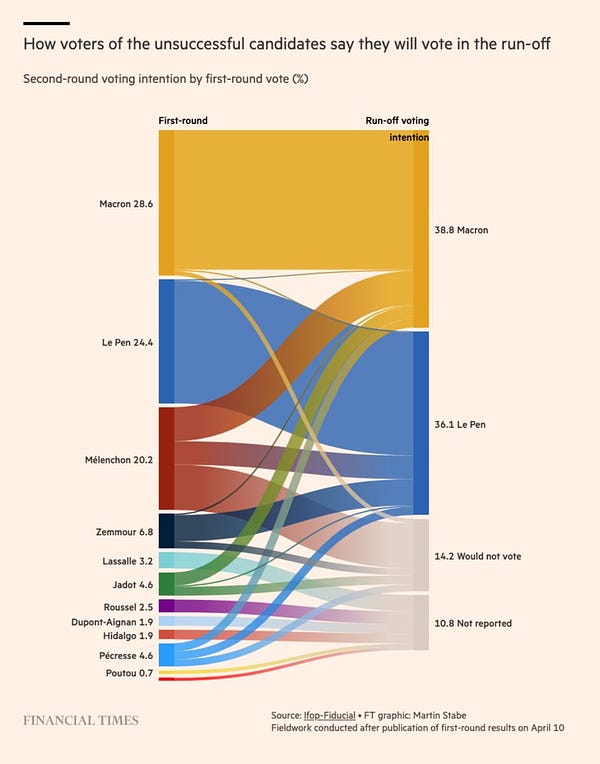
For the record today
Rent inflation - Statistics NZ reported rent inflation in March from a year ago was 5.8%, as measured by its ‘flow’ measure of new tenancies started in March. The ‘stock’ measure was up 3.7% in March from a year ago.
Thread of the day


Spookies, profundities, curiosities and feel-goods




A fun thing

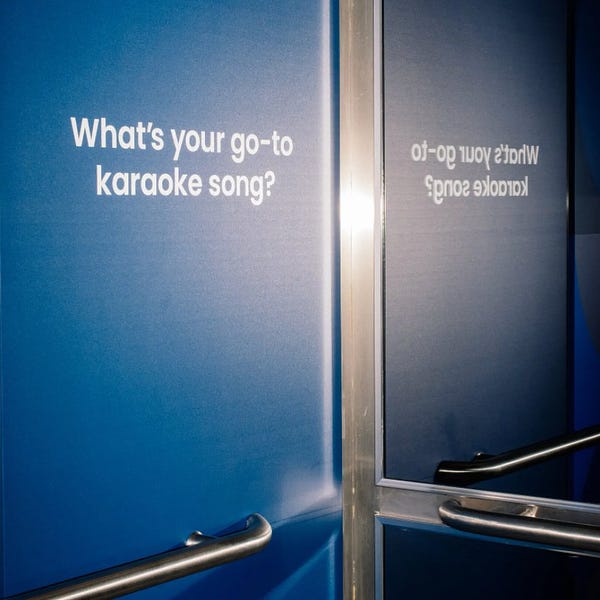
Ka kite ano
Bernard







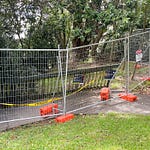




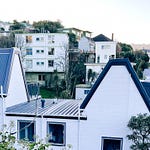


Dusk Chorus: An 'orange' double-whammy